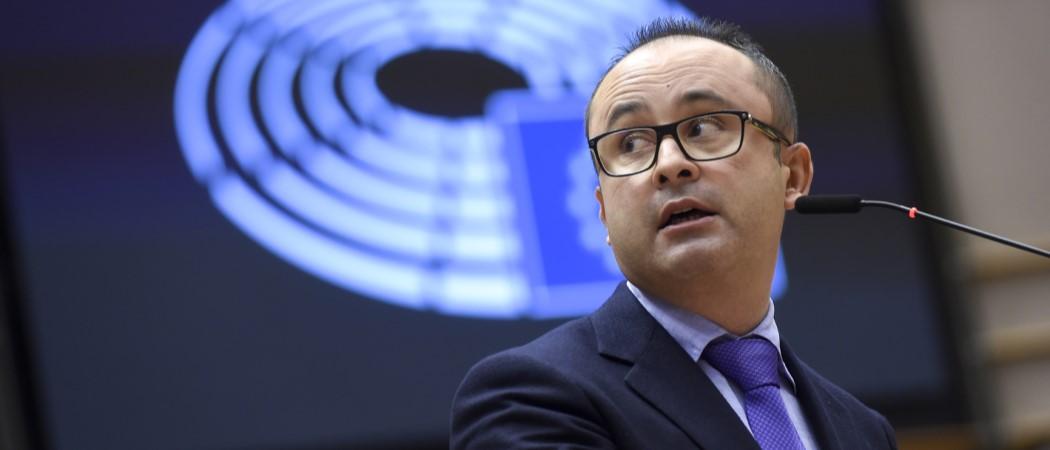New legislation aims to help polluting industries that are the foundation stone of the EU do their bit in support of 2050 carbon neutrality plan

Cristian Bușoi is the Parliament’s rapporteur for the coal and steel research fund. Photo: European Parliament
A large majority of MEPs voted through an updated legal framework for the EU’s research fund for coal and steel, allowing the programme to finance discovery and adoption of new technologies in steel production, develop clean energy in former coal mines, exploit geothermal energy, improve batteries and contribute to research in the production of green hydrogen.
Money will also be available for developing and testing carbon dioxide capture, including carbon recycling in fuels and materials. Projects on turning coal waste into battery anodes or carbon fibres would also be funded.
Coal and steel are the foundation stone of the EU. Back in 1951, six countries signed the European Coal and Steel Community Treaty to bring these industries under a common set of rules.
Since the treaty expired in 2002, the Commission has spent around €40 million every year on coal and steel projects at universities, research centres and private companies.
The new legislation aligns the programme with EU’s plan to become a carbon neutral continent by 2050.
The coal and steel research fund will complement other instruments in the Horizon Europe research and innovation programme, and the Commission’s just transition fund, a scheme aiming to help regions that still rely on coal for energy and steel production to move towards cleaner energy sources.
A Horizon Europe partnership will focus on bringing about innovations in clean steel. Commission officials hope the first joint calls for projects within the clean steel partnership in Horizon Europe will be launched as early as next month.
Cybersecurity research centre
MEPs also gave their stamp of approval to the new European Cybersecurity Industrial, Technology and Research Competence Centre.
The research centre, to be based in Bucharest, is part of the EU’s plan to build its own digital infrastructures and achieve technology sovereignty in an area that is critical for both competitiveness and security.
The centre will also work on projects with the Digital Europe and Horizon Europe programmes.
“This new structure will ensure that all the valuable expertise that exists all across Europe, be it in research institutions, small businesses, start-ups, NGOs and the open-source community, are all included in the process of deciding European research priorities,” said lead MEP Rasmus Andresen.





 A unique international forum for public research organisations and companies to connect their external engagement with strategic interests around their R&D system.
A unique international forum for public research organisations and companies to connect their external engagement with strategic interests around their R&D system.